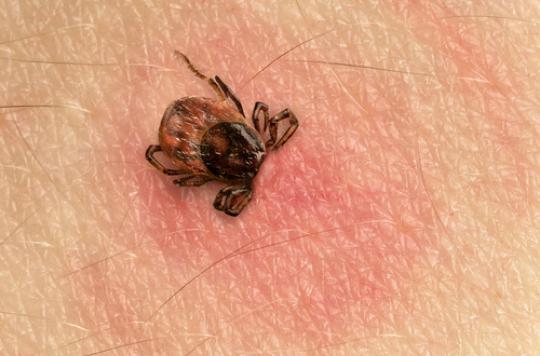During a debate organized within the learned society, the experts showed that they still could not agree on the disease.

This Tuesday, at the Academy of Medicine (Paris), it was a bit like Professor Perronne against the rest of the world. Leading Lyme disease experts have fueled the controversy by sticking to their respective positions. Several crucial points are debated in the scientific community and divide French researchers. In particular, the reliability of diagnostic tests, the existence of a chronic form of the disease, and the need to treat it with antibiotics over long periods of time.
Contracted as a result of an infected tick bite, Lyme sometimes manifests itself as erythema migrans, a sort of red circular spot that forms around the bite and gradually spreads. When spotted early, the disease is treated well in most cases with antibiotic treatment for 2 to 3 weeks. On this, all seem to agree. It is on the continuation of the events that the shoe pinches, in the cases – frequent – without erythema, or when this one is masked. The disease can then progress and becomes much more difficult to treat, the symptoms being not very specific and the biological tests giving many false negatives.
Two schools that seem irreconcilable
On the one hand, specialists from Strasbourg University Hospitals – Professors Christmann and Jaulhac – supported in their thesis by Dr François Bricaire, from Pitié-Salpêtrière, reject the idea of a chronic form, preferring a “syndrome”. post-Lyme ”. “A patient who has been treated correctly with antibiotics does not progress to chronicity,” says Professor Christmann. There are late forms: these are patients who have not been diagnosed ”.
Professor Perronne, from Raymond-Poincaré hospital in Garches, strongly supported by patient associations, insists on the contrary that chronic forms can appear and that treatment recommendations must be changed to allow doctors to prescribe antibiotics over several months. “Bacterial persistence after antibiotic therapy exists, it has been scientifically proven,” he was annoyed during the conference. The Borrelia change shape, and can reactivate ”.
Patient associations waiting
Until a consensus emerges, many patients undergo diagnostic wandering and then, guided by their unspecific symptoms, are referred between the departments of neurology and rheumatology, sometimes ending up in psychiatric consultation.
Questioned by patient associations last May, the Minister of Health had promised a plan on Lyme disease. It should be made public on September 29, after a meeting – which promises to be lively – where doctors, researchers and patient associations will be present. “I prefer to remain optimistic about the announcements that will be made to the Ministry of Health on September 29,” explained to Why actor Pierre Hecker, vice-president of the France Lyme association. The subjects to be discussed are promising. “

.















